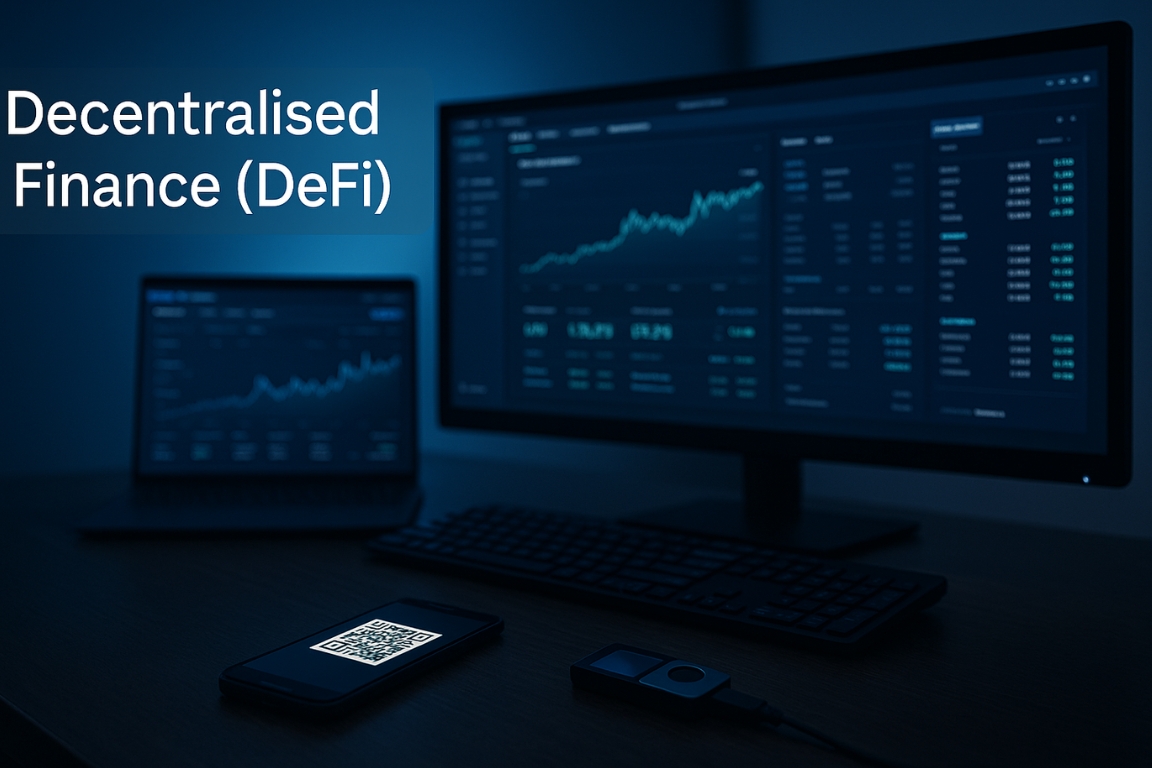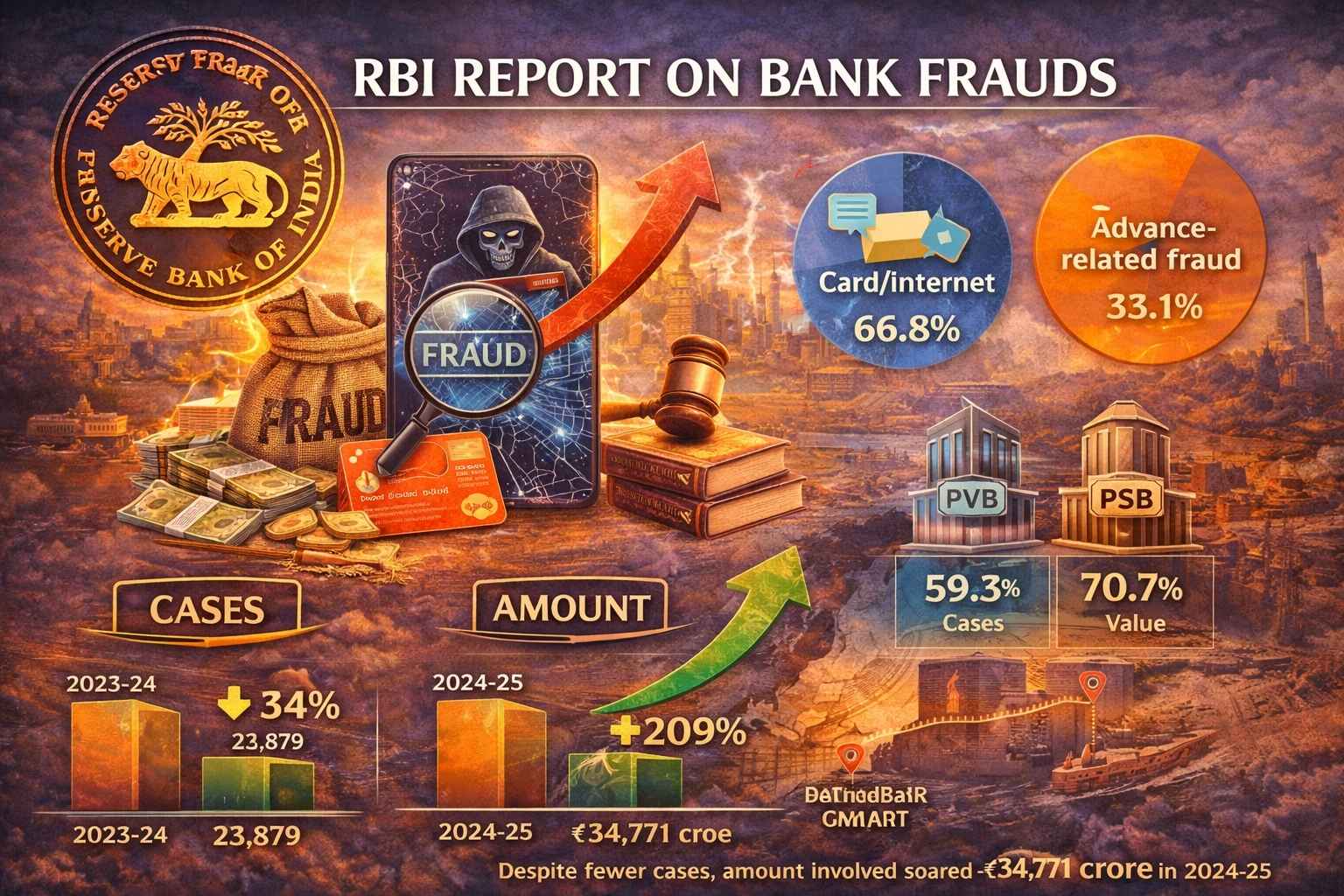Recently, concerns have been raised that Decentralised Finance (DeFi) platforms are being misused by terrorist organisations to raise funds, build infrastructure, and expand their networks.
What is DeFi?
- Definition – A financial system based on blockchain technology and cryptocurrencies that allows direct transactions between individuals and businesses.
- No Intermediaries – Unlike banks or brokers, DeFi eliminates middlemen, reducing costs and speeding up processes.
- Key Components – Operates through blockchains, stablecoins, smart contracts, decentralised applications (D-Apps), and digital wallets.

Features of DeFi
- Direct Peer-to-Peer Transactions – Money can be sent or received instantly using smart contracts.
- No Account Requirement – Users can access services with just a password, without address, phone, or email verification.
- Multiple Wallets – Individuals can create and use several crypto wallets without restrictions.
- Wide Range of Services – Provides savings, investments, lending, borrowing, insurance, and remittance facilities.
- Unrestricted Access – Anyone with internet access can use DeFi platforms without censorship.
- Full Control of Assets – Funds are stored in digital wallets, accessible anytime without reliance on banks.
Significance
- Empowers users with greater financial independence.
- Encourages faster, cheaper, and borderless transactions.
- Raises regulatory concerns due to anonymity and potential misuse.
Conclusion:
DeFi holds promise for financial innovation and inclusion but also poses serious security and regulatory risks if left unchecked.





